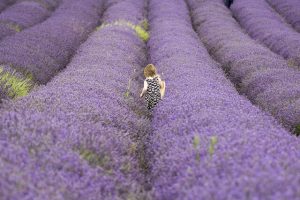You have fallen in love with Virginia and want to buy a farm of your own. Virginia is the perfect place to start your very own farm. Farming is the largest private industry in Virginia with almost 46,000 farms in the state. Some things you may want to consider as you are looking at Virginia farms for sale.
Is farming going to be a hobby or a job?
Hobbyist vs Farmer:
 Farming is hard work and the first thing you have to decide is how much effort you are willing to put into your farm. Do you want to farm as a full time job and have all of your income tied to the profits of the farm or would you like to farm for yourself with a farm stand or farmers market gig on the side to bring in some extra cash? The answer to these questions will decide just how much hard work will be needed. You will also want to decide what products you are interested in producing. A hobbyist farmer is likely going to focus on one thing to grow or produce. Perhaps it will be flowers or vegetables or goats. However a working farmer is far more likely to have multiple products that they are attempting to produce. Perhaps cows for milk or meat, a large vegetable garden and an orchard. The working farmer is more likely to have employees and to be in need of more equipment. While you are mulling things over, you begin to think about how you might finance your farm. If you are a hobbyist you may choose to self finance or take out a small bank loan. There are also numerous programs that provide education and funding for small farms. Working farmers may decide to pursue outside finance in order to purchase livestock, large amounts of seed and equipment. This in turn will assist the farmer in growing the farm to a size that will turn a profit.
Farming is hard work and the first thing you have to decide is how much effort you are willing to put into your farm. Do you want to farm as a full time job and have all of your income tied to the profits of the farm or would you like to farm for yourself with a farm stand or farmers market gig on the side to bring in some extra cash? The answer to these questions will decide just how much hard work will be needed. You will also want to decide what products you are interested in producing. A hobbyist farmer is likely going to focus on one thing to grow or produce. Perhaps it will be flowers or vegetables or goats. However a working farmer is far more likely to have multiple products that they are attempting to produce. Perhaps cows for milk or meat, a large vegetable garden and an orchard. The working farmer is more likely to have employees and to be in need of more equipment. While you are mulling things over, you begin to think about how you might finance your farm. If you are a hobbyist you may choose to self finance or take out a small bank loan. There are also numerous programs that provide education and funding for small farms. Working farmers may decide to pursue outside finance in order to purchase livestock, large amounts of seed and equipment. This in turn will assist the farmer in growing the farm to a size that will turn a profit.
Are you going to become an organic farmer or create a sustainable farm?
Organic vs Sustainable
Many people confuse these terms and end up using them interchangeably. Organic farming and sustainable farming are two very different things. Organic farming has guidelines developed by the federal government by which the farmer has to adhere to for 3 years before what the farmer produces can be certified organic. Organic farmers do not use synthetic and harmful pesticides, fertilizers, growth regulators and livestock feed additives. Oftentimes the organic farmer will use alternate farming methods such as crop rotation, mechanical cultivation and animal and green manure. The goal is to maintain healthy soil and grow healthy plants and animals as naturally as possible. However there is no regulation on how humane the farmers must treat their animals or in regards to conservation strategies. This means that your organic burger could come from a cow that spent most of its time inside and the organic produce you purchase could be grown in an area where it takes copious amounts of water to ensure that the produce thrives. Sustainable farming on the other hand has no federal regulation standards but the philosophy of sustainability is to create planet protective practices that will allow the farm to remain healthy and prosper indefinitely. Smaller is better with sustainable farming. This allows the farmer to really look at the practices they implement in regards to water usage, land use and maintenance and the humane treatment of livestock and other farm animals. The sustainable farmer will look at everything through the lens of protecting the planet. This means that the farmer not only looks at their planting, growing and harvesting practices, the farmer is looking for packaging that will not harm the planet by ending up in a landfill and looking beyond the farm at their office practices; for instance a paperless office. Both organic and sustainable farming benefit the land and animals to some degree. It is important to note though that organic farmers do not have to run sustainable farms but sustainable farmers will inevitably be organic farmers.
Whether you wish to work a small farm part time as a hobby or a larger farm full time for profit, farm life can bring a sense of well-being, accomplishment and purpose to the farmer. It is a wonderful feeling to wake up every day and know that you are doing something good for yourself, the farm and the planet.
